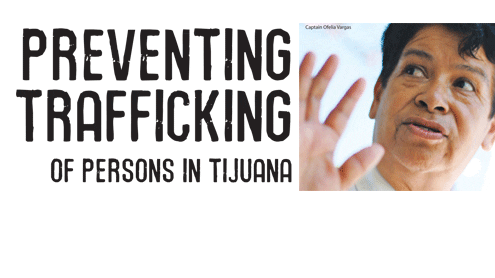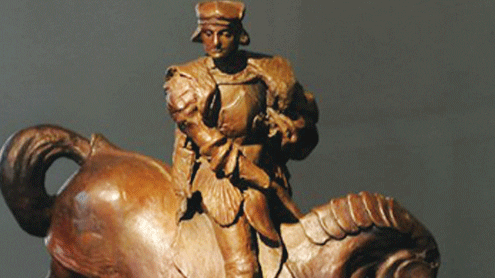IYF Report
Photos and text by John Docter –
International Youth Forum Reporter
More than 500 young Salvationist men and women, representing 50 territories and commands worldwide, met recently in Cape Town, South Africa to communicate their priorities and generate action as The Salvation Army prepares to break through into the 21st Century.
Initiated by General Paul A. Rader, the first ever International Youth Forum, which had as its theme “Breakthrough Generation,” assembled this culturally diverse group of future leaders from more than 90 countries. United in their commitment to Christ and to the mission of The Salvation Army, the delegates came together at the University of Cape Town for a week of intense study, debate, worship and rededication.
After four days of workshops followed by two days of open forum discussions with General and Mrs. Rader, the International Youth Forum delegates displayed a spirit of unity in diversity as they overwhelmingly approved the priorities they set for the Army of today and for the future. Based on the more than 120 recommendations, the delegates have asked that the Army re-examine some of its traditional views on many issues and “reaffirm its ministry to the poor, the weak and the lost.”
Through video and drama presentations and in workshops, worship services and Bible studies, delegates were called to take up arms against the evils that plague society across the globe, from poverty and war to the destruction of the environment and exploitation of children.
“If I learned nothing else, I realized the sense of urgency we must have as an Army,” said one delegate. “Time is running out.”
Forum Convener, Commissioner Arthur Thompson, international secretary for resources, IHQ, said: “The International Youth Forum was an inspired idea which proved in reality to be bigger and better than we could ever have imagined. History must view it as one of the most God-glorifying, seminal events of General Rader’s term of office as world leader.”
“The forum has been an unforgettable experience,” said Pasadena Tabernacle Corps Officer Major Chick Yuill, who presented a workshop on ethics and led Bible studies. “The youth have spoken, and General Rader has listened and promised to respond. It is no exaggeration to say that the future of The Salvation Army may look very different because of this process.” Major Margaret Yuill also served on the faculty as a counseling coordinator and a workshop facilitator.
Throughout the week, the forum leaders assured the young men and women that their recommendations would be thoroughly considered. “The General is committed to take very seriously all the recommendations that are put forward,” Thompson said at the delegates’ orientation meeting. Captain Clive Adams who, along with his wife, Captain Marianne Adams, coordinated the forum, urged the delegates, especially those from cultures where debating is less natural, to get out of their comfort zones and communicate their views. “The General wants you to express your opinion,” he said.
In his keynote message, Phil Wall, UK Territory Mission Team Leader and a workshop presenter, issued a powerful call to war. “We are an army at war against the forces of evil and darkness,” he said. “We need to have a ‘no retreat, no surrender’ mentality.” He challenged the delegates, when considering the issues raised during the week, to stay focused on the part each will play in the plight of the lost, the war that must be engaged and what the future holds.
The demanding schedule kept delegates busy from early morning until after midnight most days. Yet, in spite of the sometimes hectic pace, the Holy Spirit was still in control. Framing the line-up of workshops, seminars and open forum sessions was a challenging four-part morning Bible study series called “Breakthrough to Holiness” led by Major Chick Yuill and joyous worship and celebration services in the evening.
Worship leader Bill Nunes and his team from the Western Territory supplied the music for all the services, along with the popular Swedish gospel group “Antioch.” The two contemporary groups helped to set an atmosphere of praise and celebration. Their high-energy and inspirational choruses brought everyone to their feet, singing and dancing with hands reaching up in praise to the Lord, while their sensitive numbers brought people to their knees during periods of quiet meditation. Pakistan Territory delegate Shamaun Ayub, who was new to this style of worship music, commented excitedly, “I think it’s a great way to praise the Lord.”
During three cultural celebrations that followed the evening services, several territorial delegations performed special songs or dances from their respective countries. Delegates crowded the area in front of the stage with their cameras clicking away during these enjoyable and enriching performances.
Throughout the week, delegates attended three different workshops from a total of 11. The workshops, each limited to 50 delegates to encourage full participation, explored such theological topics as Salvation Army Essentials, Theology of Leadership, Spiritual Warfare; denominational issues including Salvation Army Essentials, Youth Ministry, Music and Worship; and social/cultural issues such as Cross-Cultural Ministry, Ethics, Relationship to Others, Media and Technology and Confronting Social Problems.
The workshops were broken up into two sessions. In the first session, the presenters outlined the issues, followed by a discussion period lead by a separate facilitator. In the second session, the delegates split up into two smaller groups where facilitators led a time of debate and discussion before the delegates drafted policy recommendations.
The 22 facilitators played a critical role in the workshops, with the awesome task of helping the culturally diverse group of delegates maintain a global focus on the issues and reach a consensus in formulating recommendations.
Delegates also attended two seminars on topics such as Salvation Army Roots, Discipleship and Mission. Optional seminars were also held on sexuality and HIV/AIDS.
Over the next several months, a committee of international secretaries will meet to determine which recommendations should be dispatched for territorial and local consideration and which have international implications. International Headquarters will continue to monitor progress of the recommendations.












